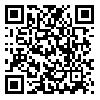Volume 9, Issue 4 (2-2024)
فصلنامه تحقیقات بنیادین علوم انسانی 2024, 9(4): 71-98 |
Back to browse issues page
Download citation:
BibTeX | RIS | EndNote | Medlars | ProCite | Reference Manager | RefWorks
Send citation to:



BibTeX | RIS | EndNote | Medlars | ProCite | Reference Manager | RefWorks
Send citation to:
Ghaeminik M R, Mottaqian M. Sociology of knowledge from the perspective of Max Weber and Moniroddin Hosseini. فصلنامه تحقیقات بنیادین علوم انسانی 2024; 9 (4) :71-98
URL: http://frh.sccsr.ac.ir/article-1-610-en.html
URL: http://frh.sccsr.ac.ir/article-1-610-en.html
Abstract: (1207 Views)
Referring to Nietzsche, Max Weber in the article "Science as a Vocation" considers the forms of human knowledge to be unique historical phenomena that are formed under the influence of the life experience. For this reason, Weber believes that the realm of social science is the realm of "understanding" (Verstehen), contrary to the positivist view that considers social science to be explainable like natural science. However, in order to avoid the relativism caused by historicity, Weber uses the methodological instrument of the ideal type to understand social phenomena by proposing ideas such as selective affinity, historical causality and a special meaning of objectivity. In this article, after the extensive explanation of Weber's view on the sociology of knowledge, we will point out that Weber's solution to overcome the relativism of knowledge will be caught in a crisis. In response to this crisis, we will discuss Moniroddin Hosseini's perspective in the field of sociology of knowledge. In the opinion of the Hosseini, although knowledge is a social matter and the existence of society is determined by historical existence, but knowledge never becomes a relative and unstable matter, because from his point of view, there are divine rules that
govern on the historical, social and individual spheres of man, and there is no possibility of going beyond the strictness of those rules.
govern on the historical, social and individual spheres of man, and there is no possibility of going beyond the strictness of those rules.
Send email to the article author
| Rights and permissions | |
 |
This work is licensed under a Creative Commons Attribution-NonCommercial 4.0 International License. |






